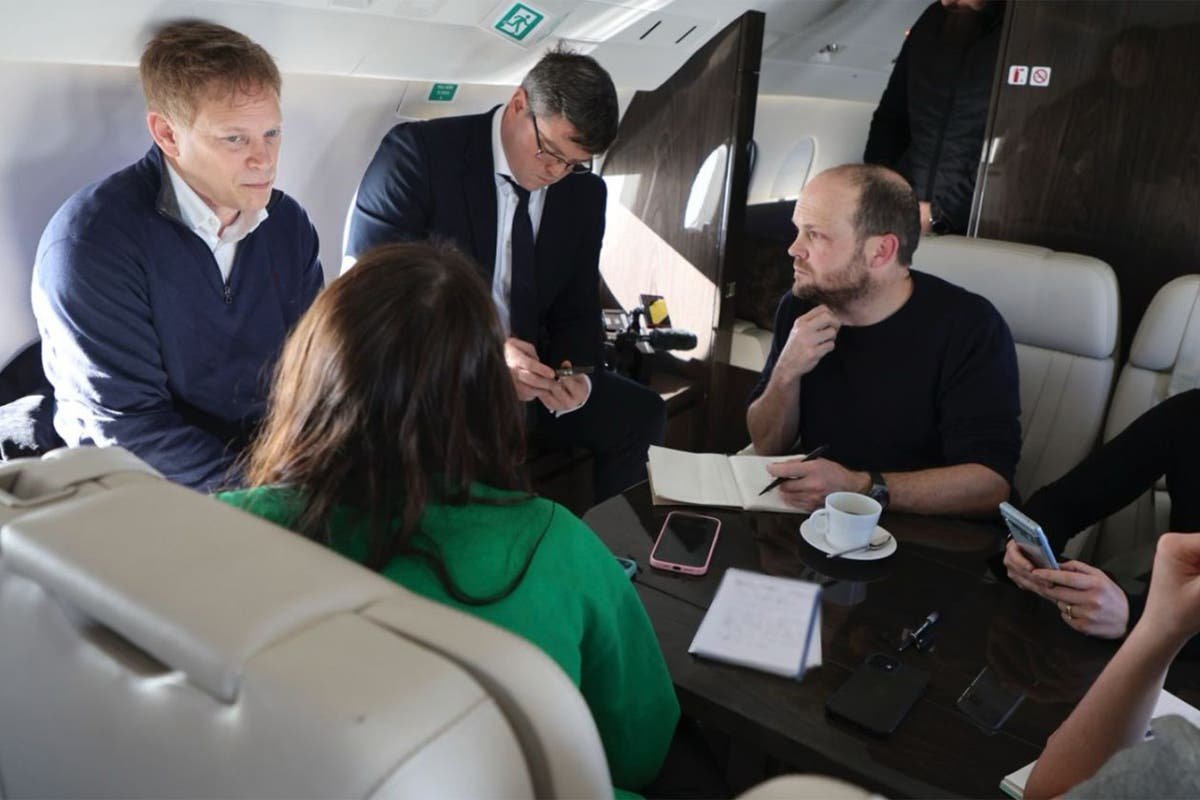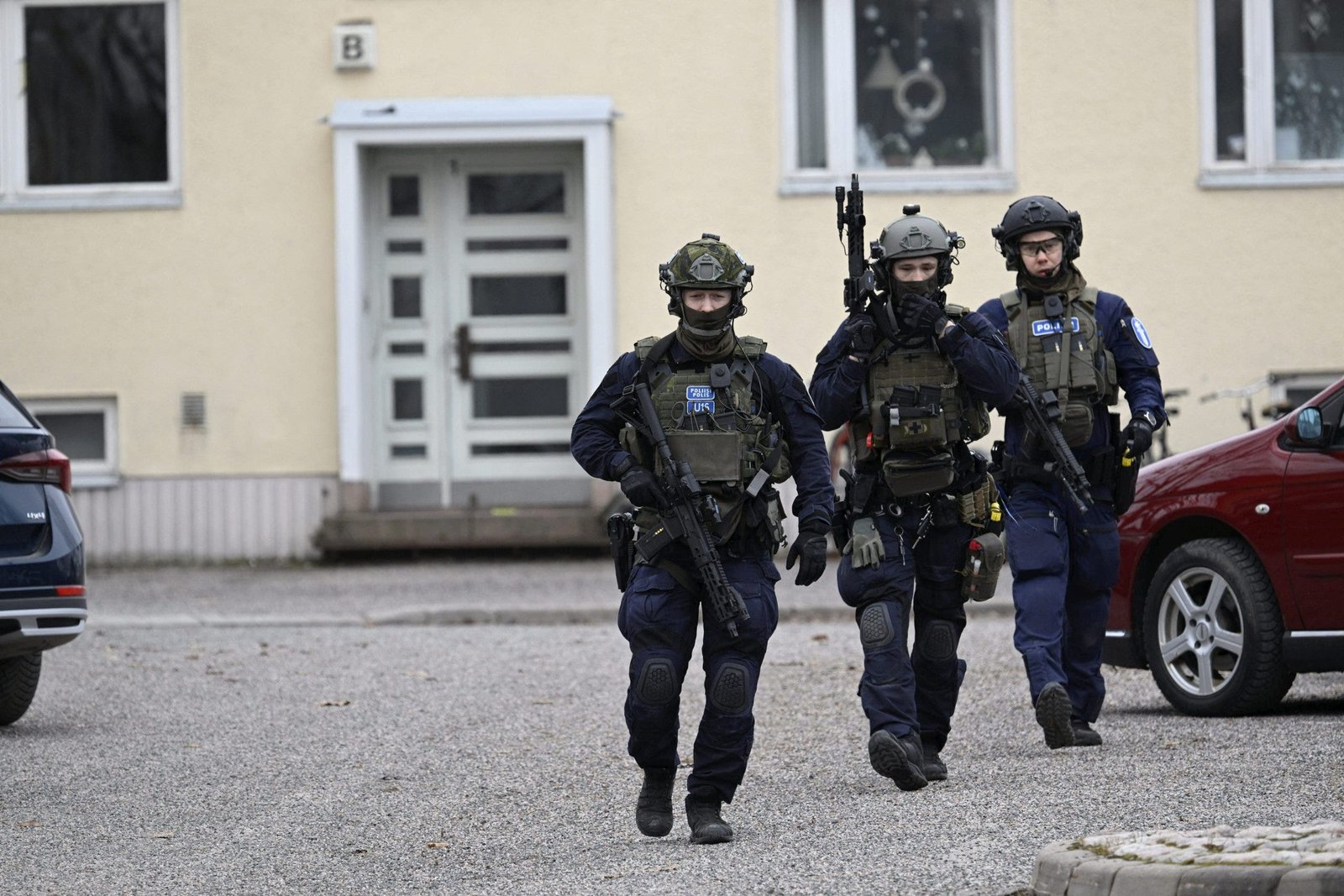Russia is believed to have jammed the GPS signal on an RAF aircraft carrying Grant Shapps back from a trip to Poland.
In what has been called a “wildly irresponsible” act of electronic warfare, the GPS signal of the plane was said to have been interfered with for half an hour while passing the Russian territory of Kaliningrad, which sits between Poland and Lithuania.
The attack left phones unable to connect to the plane’s WiFi and the plan forced to use other navigation systems available to the pilots.
The defence secretary was aboard an RAF Dassault 900LX Falcon jet, named Envoy. It is unclear if Mr Shapps himself would have been deliberately targeted, though his flight path was visible to trackers. Mr Shapps was assured the attack on Wednesday did not threaten the safety of the plane.

A defence source said: “While the RAF are well prepared to deal with this, it still puts an unnecessary risk on civilian aircraft and could potentially endanger people’s lives. There is no excuse for this and it’s wildly irresponsible on Russia’s part.”
Another source said it was “not unusual” for such jamming to occur while near Kaliningrad. It is not the first time that British planes have faced likely jamming by Russia. In 2021, planes flying in and out of RAF Akrotiri on Cyprus wre also thought to have had their GPS signals jammed by Moscow. The aircraft affected were believed to have been F-35 and Typhoon fighter jets, A400M transport aircraft and Voyager troop planes. No serious incidents were reported at the time, but the singal was thought to have been coming from Syrian territory, where Russia has had a presence.
Poland and a number of nations in the Baltic region have also reported kevels of GPS interference in recent months. The Institute for the Study of War think tank, which monitors the war in Ukraine, said in a report in January that areas of the nother and east of Poland on 10 January and 16 January, while areas of the south Baltic Sea saw something similar on 25 December and 27 December. With an increased use of drones from both Russia and Ukraine during Mosow’s invasion, electronic warfare such as jamming has taken on an increased importance.
Grant Shapps and Polish Defence Minister Wladyslaw Kosiniak-Kamysz greet and chat with British and Polish troops on Wednesday
(AFP via Getty Images)
Swedish military officer Joakim Paasikivi told the country’s SVT broadcaster that month that he believed the GPS activity was a result of Russian hyprid warfare. “I believe this is part of Russian influence activities or so-called hybrid warfare,” he said. “This may be Russia’s way of sowing uncertainty.”
Mr Shapps was returning from a visit to a military training site in Orzysz, northeast Poland, about 100 miles from Kalinigrad. He watched troops taking part in the Steadfast Defender, Nato’s largest military exercises since the Cold War. The exercises, taking place until May includes around 90,000 troops from across the alliance, including UK forces.
During the trip to Poland, Mr Shapps hit out at Vladimir Putin’s “sabre-rattling” after the Russian leader used an interview with state media to claim that his nation was “ready” for nuclear war if the need arose. It is a threat that he has used repeatedly since invading Ukraine, with Western allies – including the UK – having rallied around Kyiv as it has defended itself. Mr Shapps called such rhetoric “irresponsible” and that Putin should “drive back east and get out of the democratic country he decided to invade two years ago”.
Mr Shapps has also called for UK military spending to increase to 3 per cent of GDP, saying in Poland: “I want a bigger budget.”
Mr Shapps said: “I have coined the phrase ‘moving from post-war to pre-war’. We have to be much better prepared.
“Defence is the best way to protect ourselves against a military conflict – you have to show your adversaries – so I am clearly in favour [of a 3 per cent target]. We live in a more dangerous world, we’ve got Putin on the frontline making gains.”
(AFP via Getty Images)
That is a reference to gains Putin’s forces have made in eastern Ukraine, with Kyiv’s troops being forced to withdraw from a number of towns and villages. Ukraine has called on Western allies to send more weapons and ammunition to combat shortages it is facing on the frontline – with delays to Western aid seen as part of the cause.
The US Congress has so-far failed to pass fresh military aid funding for Ukraine, despite months of talks – with group of congressional Democrats including the former House of Representatives speaker Nancy Pelosi and armed services veterans urging the current Republican speaker, Mike Johnson, to “lead, follow or get out of the way” so that a package can be passed. Joe Biden has been clear that Congress needs to due its duty to pass billions of dollars in funds. On Tuesday, the White House announced that the US would send Ukraine aid worth $300m, which will come from savings on Pentagon contacts. The funds will be used for artillery munitions.
Research by the Royal United Services Institute in 2022 suggested that increasing UK defence spending to 3 per cent of GDP by 2030, as suggested by Liz Truss’s government, would require £157 billion in additional spending over the following eight years.
Mr Shapps’ call follows demands from security minister Tom Tugendhat and Foreign Office minister Anne-Marie Trevelyan that spending rise from 2.27 per cent of GDP to 2.5 per cent immediately.
Last week’s Budget contained no new money for defence despite concerns about the state of Britain’s armed forces and the government’s commitment to spend 2.5 per cent of GDP on the military “as soon as economic conditions allow”.
The Ministry of Defence (MoD) has also announced that the UK will get 14 new Chinook helicopters Mr Shapps announced the commitment to proceed with the contract, reversing a decision by his predecessor Ben Wallace to scrap the deal in a diplomatic spat over the £2.3 billion price tag – £500 million more than initial estimates. The price was negotiated down to £2bn. Mr Shapps said that Mr Wallace’s intervention had been helpful in bringing about that reduction.
Mr Shapps said: “Procuring these Chinook helicopters will mark a significant milestone in our efforts to modernise and enhance the agility of the UK armed forces, cementing our ability to respond at pace to situations and threats across the globe.
“The Chinook is one of our most iconic aircraft, having been operated in every major conflict since the Falklands War. Delivering on this deal not only enhances our capability, but will boost UK industry and skills.”









